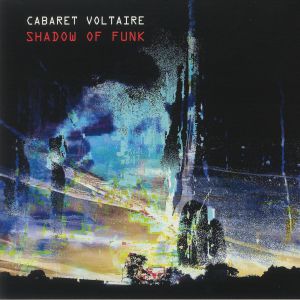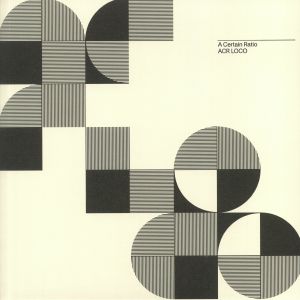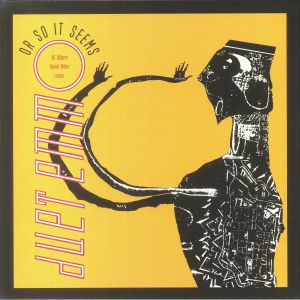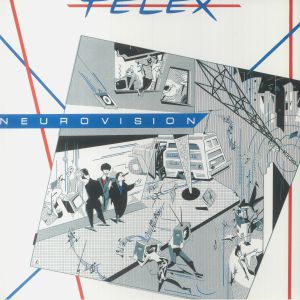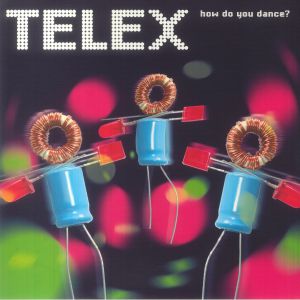Back catalogue: Coldwave/Synth
Juno's full catalogue of Coldwave/Synth
シングル
Shadow Of Funk (limited transparent blue vinyl 12" + MP3 download code)
Cat: 12MUTE 622. Rel: 26 Feb 21
Review: When Cabaret Voltaire returned to the release schedule in 2020 as the one-man Richard H Kirk show, fans were relieved to find that mind-bending meld of 1970s Kosmische, techno, dub, house and space-age experimental electro was as pure as it ever has been - the results being a typically fresh and forward-thinking record the man in question summed up as "no nostalgia... normal rules do not apply. Something for the 21st Century. No old material."
Less than six months later and the big CV has more next level business to offer us, coming in the form of Shadow of Funk, a new EP that offers something of a counterpoint or extension to last year's full-length, Shadow of Fear. Based on 'Billion Dollar' alone - an acid-driven big, dark room banger that closes this EP -this release looks set to make an equally heavy impact, but as with anything this man touches, the joy is in discovery. So, let's leave it at that.
… Read moreLess than six months later and the big CV has more next level business to offer us, coming in the form of Shadow of Funk, a new EP that offers something of a counterpoint or extension to last year's full-length, Shadow of Fear. Based on 'Billion Dollar' alone - an acid-driven big, dark room banger that closes this EP -this release looks set to make an equally heavy impact, but as with anything this man touches, the joy is in discovery. So, let's leave it at that.
Played by: Juno Recommends Leftfield
in stock $21.40
アルバム
ACR Loco (limited coloured vinyl LP + booklet + MP3 download code)
Cat: STUMM 454. Rel: 25 Sep 20
Review: A Certain Ratio's core trio of drummer Donald Johnson, bassist/vocalist Jez Kerr, and multi-instrumentalist Martin Moscrop make ACR Loco a perfectly fluid and funk album. In fact, on this, their first album in more than ten years, the Manchester post-punk outfit are as funky as they have ever been. Their tried and tested sound gets nicely updated with modern beat driven sounds and plenty of redefines to today's political strife in the lyrics. There are plenty of smooth and cool synth led grooves like 'Get A Grip' and messages of unity on 'Family' that we can all relate to.
… Read morePlayed by: DJ ROCCA
in stock $25.07
Review: London's legendary Mute institution goes back to its roots and digs up some of the best work by one of the UK's finest Cabaret Voltaire. These guys don't really need an introduction give the fact that they're pretty much responsible for the rise of post-punk right through to the birth of techno. It was about time a new compilation of their stuff was released, especially one as brutally on-point as this one! All the classics such as "Nag Nag Nag", "Kneel To The Boss" and "On Every Other Street" are one here but the more obscure rarities that were previously only available on 7" are the real winners. "Just Fascination", for example, is one you'll certainly want on a longer, re-mastered cut! Downright essential!
… Read morePlayed by: Juno Recommends Experimental, Snuffo
in stock $22.26
Or So It Seems (remastered) (limited gatefold white vinyl LP + 1-sided LP + MP3 download code)
Cat: LSTUMM 11. Rel: 18 Aug 22
Review: Graham Lewis, Bruce Gibert, Mute label founder and all round legend Daniel Miller came together to make this Duet Emmo record way, way back in 1981. Finishing the work a year later, it would be another 12 months before fans and unexpected listeners could access their accomplishment: a landmark experimental electronic release that also set benchmarks for minimal wave.
Perhaps what's so remarkable is the way in which Or So It Seems doesn't just play with, but offers an aural essay on timbre and resonance, depth and texture. There's not a huge amount happening on any of the nine tracks, but nevertheless they suck you in so far you'll find it difficult to remember which way to swim to resurface. Up or down, sideways or diagonal, whatever route it all winds up with the delightfully weird-but-fun 'Heart of Hearts'.
… Read morePerhaps what's so remarkable is the way in which Or So It Seems doesn't just play with, but offers an aural essay on timbre and resonance, depth and texture. There's not a huge amount happening on any of the nine tracks, but nevertheless they suck you in so far you'll find it difficult to remember which way to swim to resurface. Up or down, sideways or diagonal, whatever route it all winds up with the delightfully weird-but-fun 'Heart of Hearts'.
Played by: Juno Recommends Experimental
in stock $33.52
Review: Berlin-based producer JakoJako aka Sibel Kocer's debut album for Mute - after appearances on a stream of leading German labels including Tresor - is described as a distillation of ideas that she's been exploring for many years. In reality, that means working on a minimal set up, away from the computer while restricting herself to just a Eurorack and a Waldorf Iridium Core, in the search for spontaneity. She found it, for sure, as the results - recorded in Vietnam during the Tet Lunar New Year celebrations - are a feast of glistening arpeggios and lush modular textures, stripped back but full of expression and personality. 'Ghi-ta' will appeal to fans of vintage perky ambient productions the Pete Namlook/Mixmaster Morris collaboration Dreamfish, while 'Gio' has a touch of Tangerine Dream's classic widescreen sensibilities. Bold tones, bold debut.
… Read more in stock $27.03
Review: Known for their cover versions - having re-read Sly Stone, Plastic Bertrand, Les Chats Sauvages, and many more over the years - Telex managed to tread a fine line between comedy and innovation. Focusing heavily on a lo-fi synthesised sound, the Belgian alt-poppers would use plenty of humour in their work, but never allowed this to outshine or overshadow the musicality of it all. Released in 1980, Neurovision is a case in point. According to the band, this was their tongue-in-cheek entry to the Eurovision Song Contest, for which they were chosen as representatives for their home country in the same year. Deliberately banal lyrics, mostly referring to the competition itself, married to the glittering wonder of a proto-electronic soundtrack, mark it as a work of bold daring and a little genius. Sadly, it failed to secure them last place in the tournament, as they hoped, forcing them to settle for 17 out of 19.
… Read morePlayed by: Marco Febbraro
in stock $16.06
Review: Formed in 1978, Marc Moullin, Dan Lacksman, and Michael Moers broke the mould with Telex - one of the most influential Belgian synth-pop groups of all time. Calling on disco, punk, and the sound of formative era experimental electronic music that was beginning to take hold in Western Europe, they would simultaneously produce some of the most important tracks of the genre until their first disbandment in 2006, and bless us with hilarious pithiness in the shape of tunes like 'Euro-Vision', a bleep-driven 'critique' of the song contest. How Do You Dance? was the group's final studio album, rounding out a six-strong, decade-spanning LP back catalogue, and despite arriving almost three decades after their debut, Looking for Saint Tropez, turned heads for its originality, this beauty still proved they were more than capable of delivering innovative goods. One for fans of Metronomy, Todd Terje and more.
… Read more in stock $16.06

 USD
USD





